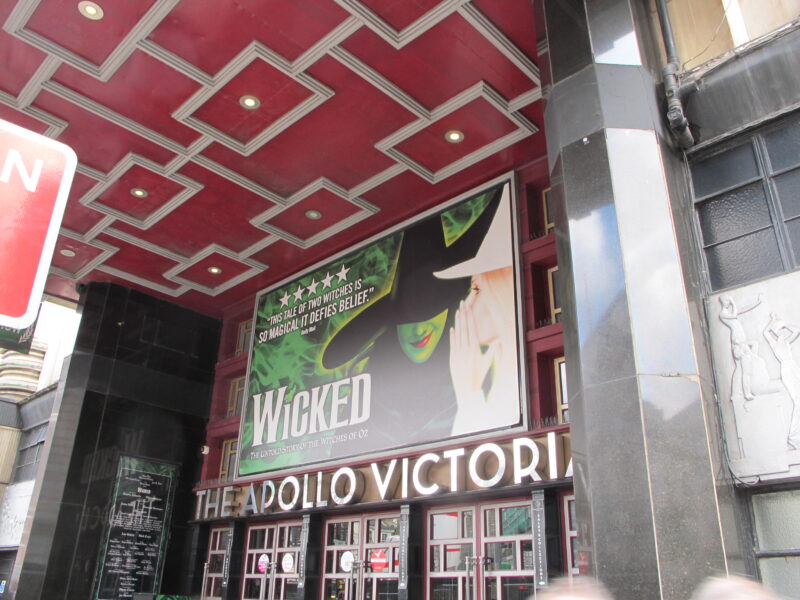
Wicked mania has swept the globe! Whether it’s the countless brand deals, Cynthia Erivo and Ariana Grande’s red-carpet looks, or the simple yet powerful notion of “holding space” for the lyrics of Defying Gravity- the crown jewel of the Wicked track list- everyone is seated. Movie-musicals are back!
Yet, in recent years, musicals have been the butt of the joke. Like an elderly relative locked away in a back room, soon to be shipped off to a nursing home, movie musicals have been the subject of disdain, mocked by everyone from hardcore Letterboxd film-bros to casual cinema-goers.
To them, I say, “Show some respect!”. Musicals are woven into the fabric of cinema; many of the first “talkies”, the first motion pictures with sound, were musicals, making the most of new technological developments. Some of the most iconic cinematic visuals entered the cultural zeitgeist via this medium, such as Gene Kelly’s lamppost-twirling and puddle-splashing in Singin’ in the Rain (1952) and Judy Garland’s ruby-red slippers on the Yellow Brick Road in The Wizard of Oz (1939). Not to mention that ten films, which range from West Side Story (1961) to The Sound of Music (1965) to Chicago (2002), have won the Academy Award for Best Picture. Musicals are ingrained into our culture, so much callous ridiculing is abominable, a total disregard for an essential part of who we are film-consuming lifeforms.
Musicals are woven into the fabric of cinema; many of the first “talkies”, the first motion pictures with sound, were musicals, making the most of new technological developments.
As a self-proclaimed musical theatre aficionado, I hope that the success of Wicked marks a turn in the movie-musical landscape. But it will be difficult. Many newer additions to the canon, such as Wonka (2023) and Mean Girls (2024), were hidden behind the guise of a song-less trailer- covert musicals- only to be met by a sea of groans from audiences. And the constant recycling of Intellectual Property is baffling in its absurdity, with the aforementioned Mean Girls, for instance, being based on a stage show, that’s based on a film, that’s based on a book. To many musical haters, movie musicals are rotten, maggot-ridden corpses that only the necromancy of Wicked has been able to resuscitate. Yet, like many dead things, should movie musicals be left to rest in peace?
To many musical haters, movie musicals are rotten, maggot-ridden corpses that only the necromancy of Wicked has been able to resuscitate. Yet, like many dead things, should movie musicals be left to rest in peace?
I implore not! I think the movie-musical issue lies in one key factor that no one is talking about the bastardisation of the music in musicals. Call me a fascist, a musical-theatre eugenicist, if you will, but I believe musicals are at their finest when they steer clear from the pop-music genre. I have a penchant for the classics, the Rogers and Hammerstein, the Kander and Ebb, which occasionally incorporate other genres, such as jazz or opera, but remain inherently within the musical theatre genre. Thus I have qualms with the seemingly omnipotent Lin-Manuel Miranda and his incessant musical rap style, which seems to permeate all aspects of pop culture; “We Don’t Talk About Bruno” from Encanto (2021) was written expressly to become a TikTok hit! And don’t even get me started on Andrew Lloyd Webber…
My limits of pop in musicals reach the levels of Stephen Schwartz’s songs in Wicked, which are pop and rock-influenced, but no more than that. On the horizon, there are a couple of movie musicals that might (fingers crossed!) escape development hell and, due to my knowledge of the entities as stage musicals, could be successful. Perhaps Sondheim’s Follies and Schönberg and Boublil’s Miss Saigon can, like Wicked, which share similar attributes of captivating narratives and great music, also rouse the goodwill of the people.


